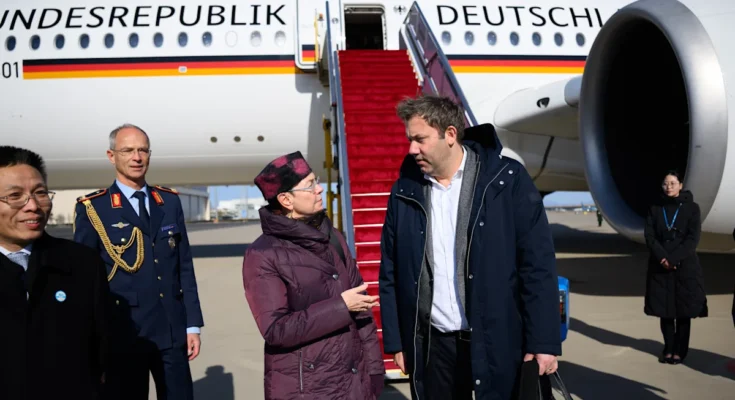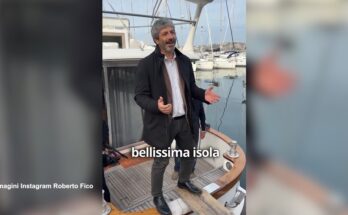After Foreign Minister Wadephul postponed his trip to China, Finance Minister Klingbeil is now leaving for Beijing. Green Party leader Franziska Brantner spoke of signaling a “haphazard foreign policy” and called for a clear China strategy.
The Green Party criticized Federal Finance Minister Lars Klingbeil’s (SPD) trip to China. “The federal government is sending very contradictory signals to Beijing,” Green Party leader Franziska Brantner told the Editorial Network Germany (RND) newspaper on Monday. “If the Foreign Minister had to cancel his trip due to the lack of a serious offer to hold talks, while the Finance Minister arrived at the same time as planned, then that would look haphazard in terms of foreign policy.”
Federal Foreign Minister Johann Wadephul (CDU) postponed a planned trip to China in October. The Ministry of Foreign Affairs explained that China could not yet confirm Wadephul’s appointment. However, the visit had to be rescheduled.
Green Party leader Brantner has now said, in light of Finance Minister and Vice-Chancellor Klingbeil’s trip to China, that Germany needs a “clear and coordinated China strategy”, especially considering China’s role in Russia’s war of aggression against Ukraine and new trade restrictions. He added: “After relations with Moscow, we don’t need relations with Beijing anymore.”
Klingbeil should talk to those responsible in China about threats to stop shipments of chips or rare earth metals, Brantner told the RND newspaper. “I expect Mr. Klingbeil will emphasize healthy competition in Beijing.”
German-Chinese financial dialogue in Beijing
Klingbeil will take part in the German-Chinese financial dialogue in Beijing on Monday, a discussion format established in 2015. The Finance Minister will meet Deputy Prime Minister He Lifeng there. He was accompanied by Bundesbank President Joachim Nagel and a small delegation of representatives from German banks and insurance companies. According to a Ministry of Finance spokesperson, important trade issues such as China’s restrictions on rare earth metals will be discussed. On Wednesday, Klingbeil wants to travel to Shanghai to meet with the heads of German mid-sized companies. On Thursday we will continue to Singapore.
“We seek dialogue with China to find solutions to pressing problems despite rising international tensions,” the Finance Minister said on Sunday before his departure. He also found words of caution: “Access to critical raw materials and reducing China’s excess capacity in sectors such as steel and electromobility are crucial for the German economy and jobs. We are not afraid of competition, but it must be fair.” Regarding China’s role in the Ukraine war, Klingbeil explained that China played “an important role in ending this war.”
Recently, China’s trade restrictions on rare earth metals and a dispute between Beijing and the Netherlands over the supplier of Nexperia automotive chips raised concerns in Europe. Klingbeil previously explained that dialogue with China was important despite rising international tensions: “We are coordinating closely with the federal government and also with the European Union. We support rules-based markets and global economic stability.”
In addition, the record trade deficit also puts pressure on relations between the two countries. According to estimates by the German economic development agency Trade & Invest, the deficit is expected to be 87 billion euros this year. Although German exports to China fell by 13.5 percent from January to August, imports increased by 8.3 percent.
The trade conflict between the US and China under US President Donald Trump worsened the situation as Chinese companies shifted their exports to Europe. The Bundestag set up an expert commission on Thursday to rethink trade policy towards China.
AFP/Reuters/dp



